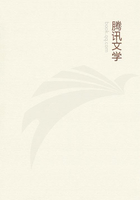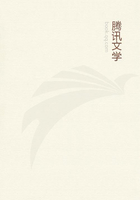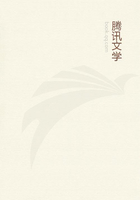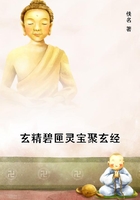Such were the actions of the men who are here interred, and of others who have died on behalf of their country; many and glorious things I have spoken of them, and there are yet many more and more glorious things remaining to be told--many days and nights would not suffice to tell of them. Let them not be forgotten, and let every man remind their descendants that they also are soldiers who must not desert the ranks of their ancestors, or from cowardice fall behind. Even as I exhort you this day, and in all future time, whenever I meet with any of you, shall continue to remind and exhort you, O ye sons of heroes, that you strive to be the bravest of men. And I think that I ought now to repeat what your fathers desired to have said to you who are their survivors, when they went out to battle, in case anything happened to them. I will tell you what Iheard them say, and what, if they had only speech, they would fain be saying, judging from what they then said. And you must imagine that you hear them saying what I now repeat to you:--'Sons, the event proves that your fathers were brave men; for we might have lived dishonourably, but have preferred to die honourably rather than bring you and your children into disgrace, and rather than dishonour our own fathers and forefathers; considering that life is not life to one who is a dishonour to his race, and that to such a one neither men nor Gods are friendly, either while he is on the earth or after death in the world below. Remember our words, then, and whatever is your aim let virtue be the condition of the attainment of your aim, and know that without this all possessions and pursuits are dishonourable and evil. For neither does wealth bring honour to the owner, if he be a coward; of such a one the wealth belongs to another, and not to himself. Nor does beauty and strength of body, when dwelling in a base and cowardly man, appear comely, but the reverse of comely, making the possessor more conspicuous, and manifesting forth his cowardice. And all knowledge, when separated from justice and virtue, is seen to be cunning and not wisdom; wherefore make this your first and last and constant and all-absorbing aim, to exceed, if possible, not only us but all your ancestors in virtue; and know that to excel you in virtue only brings us shame, but that to be excelled by you is a source of happiness to us. And we shall most likely be defeated, and you will most likely be victors in the contest, if you learn so to order your lives as not to abuse or waste the reputation of your ancestors, knowing that to a man who has any self-respect, nothing is more dishonourable than to be honoured, not for his own sake, but on account of the reputation of his ancestors. The honour of parents is a fair and noble treasure to their posterity, but to have the use of a treasure of wealth and honour, and to leave none to your successors, because you have neither money nor reputation of your own, is alike base and dishonourable. And if you follow our precepts you will be received by us as friends, when the hour of destiny brings you hither; but if you neglect our words and are disgraced in your lives, no one will welcome or receive you. This is the message which is to be delivered to our children.
'Some of us have fathers and mothers still living, and we would urge them, if, as is likely, we shall die, to bear the calamity as lightly as possible, and not to condole with one another; for they have sorrows enough, and will not need any one to stir them up. While we gently heal their wounds, let us remind them that the Gods have heard the chief part of their prayers; for they prayed, not that their children might live for ever, but that they might be brave and renowned. And this, which is the greatest good, they have attained. A mortal man cannot expect to have everything in his own life turning out according to his will; and they, if they bear their misfortunes bravely, will be truly deemed brave fathers of the brave. But if they give way to their sorrows, either they will be suspected of not being our parents, or we of not being such as our panegyrists declare. Let not either of the two alternatives happen, but rather let them be our chief and true panegyrists, who show in their lives that they are true men, and had men for their sons. Of old the saying, "Nothing too much," appeared to be, and really was, well said. For he whose happiness rests with himself, if possible, wholly, and if not, as far as is possible,--who is not hanging in suspense on other men, or changing with the vicissitude of their fortune,--has his life ordered for the best.
He is the temperate and valiant and wise; and when his riches come and go, when his children are given and taken away, he will remember the proverb--"Neither rejoicing overmuch nor grieving overmuch," for he relies upon himself. And such we would have our parents to be--that is our word and wish, and as such we now offer ourselves, neither lamenting overmuch, nor fearing overmuch, if we are to die at this time. And we entreat our fathers and mothers to retain these feelings throughout their future life, and to be assured that they will not please us by sorrowing and lamenting over us. But, if the dead have any knowledge of the living, they will displease us most by making themselves miserable and by taking their misfortunes too much to heart, and they will please us best if they bear their loss lightly and temperately. For our life will have the noblest end which is vouchsafed to man, and should be glorified rather than lamented.
And if they will direct their minds to the care and nurture of our wives and children, they will soonest forget their misfortunes, and live in a better and nobler way, and be dearer to us.
'This is all that we have to say to our families: and to the state we would say--Take care of our parents and of our sons: let her worthily cherish the old age of our parents, and bring up our sons in the right way.
But we know that she will of her own accord take care of them, and does not need any exhortation of ours.'
This, O ye children and parents of the dead, is the message which they bid us deliver to you, and which I do deliver with the utmost seriousness. And in their name I beseech you, the children, to imitate your fathers, and you, parents, to be of good cheer about yourselves; for we will nourish your age, and take care of you both publicly and privately in any place in which one of us may meet one of you who are the parents of the dead. And the care of you which the city shows, you know yourselves; for she has made provision by law concerning the parents and children of those who die in war; the highest authority is specially entrusted with the duty of watching over them above all other citizens, and they will see that your fathers and mothers have no wrong done to them. The city herself shares in the education of the children, desiring as far as it is possible that their orphanhood may not be felt by them; while they are children she is a parent to them, and when they have arrived at man's estate she sends them to their several duties, in full armour clad; and bringing freshly to their minds the ways of their fathers, she places in their hands the instruments of their fathers' virtues; for the sake of the omen, she would have them from the first begin to rule over their own houses arrayed in the strength and arms of their fathers. And as for the dead, she never ceases honouring them, celebrating in common for all rites which become the property of each; and in addition to this, holding gymnastic and equestrian contests, and musical festivals of every sort. She is to the dead in the place of a son and heir, and to their sons in the place of a father, and to their parents and elder kindred in the place of a guardian--ever and always caring for them. Considering this, you ought to bear your calamity the more gently; for thus you will be most endeared to the dead and to the living, and your sorrows will heal and be healed. And now do you and all, having lamented the dead in common according to the law, go your ways.
You have heard, Menexenus, the oration of Aspasia the Milesian.
MENEXENUS: Truly, Socrates, I marvel that Aspasia, who is only a woman, should be able to compose such a speech; she must be a rare one.
SOCRATES: Well, if you are incredulous, you may come with me and hear her.
MENEXENUS: I have often met Aspasia, Socrates, and know what she is like.
SOCRATES: Well, and do you not admire her, and are you not grateful for her speech?
MENEXENUS: Yes, Socrates, I am very grateful to her or to him who told you, and still more to you who have told me.
SOCRATES: Very good. But you must take care not to tell of me, and then at some future time I will repeat to you many other excellent political speeches of hers.
MENEXENUS: Fear not, only let me hear them, and I will keep the secret.
SOCRATES: Then I will keep my promise.
End

